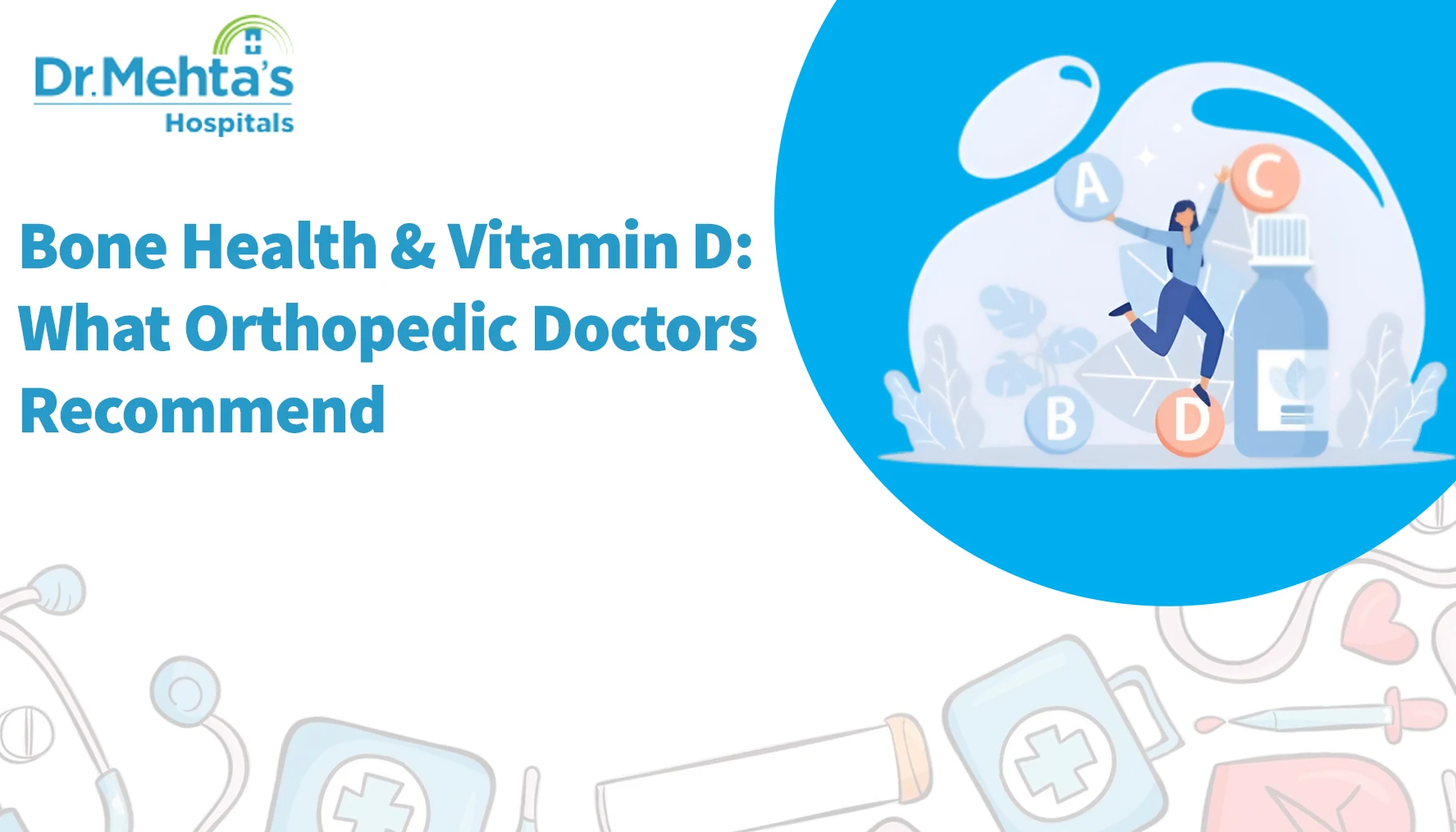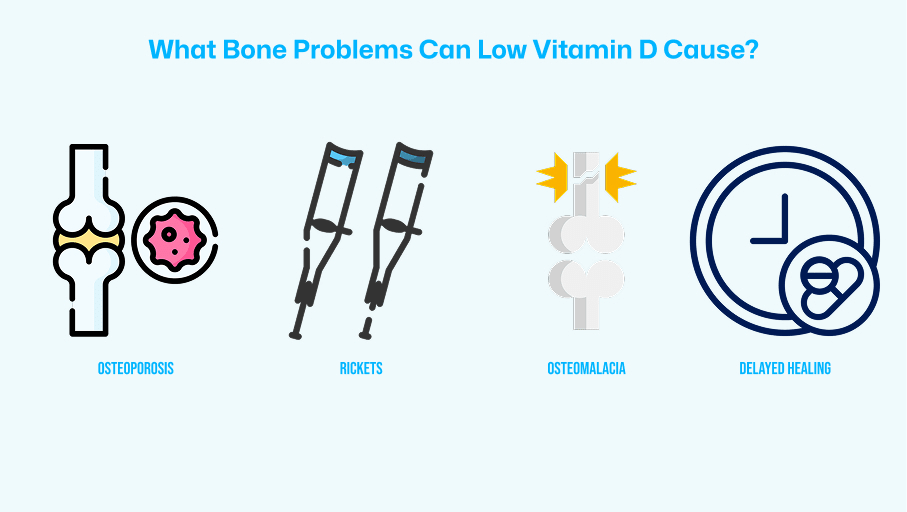Table of Contents

Our body is built on the bones, which provide us strength, mobility and protection. Bone health is even more significant as we age. Many individuals may have low bone density or joint issues without realizing that the key to stronger bones can be simple, maintaining a balance of Vitamin D and calcium. In this article, we share orthopedic bone health tips from top specialists, while highlighting the importance of Vitamin D and practical ways to maintain healthy bones and joints.
Vitamin D is commonly referred to as the sunshine vitamin since it is produced in our body when we are in the sun. It is important in maintaining calcium and phosphorus two minerals that are vital in bone strength. The absence of Vitamin D makes the body incapable of absorbing calcium, which in the long run makes the bones fragile.
The orthopedic specialists highlight that keeping the right amount of Vitamin D is one of the greatest orthopedic guidelines on Vitamin D since it promotes healthy development among children, prevents rickets and lowers the chances of osteoporosis in the elderly.
In India, around 70%–90% of people have a vitamin D deficiency, which is closely connected to weak bones and diseases such as osteoporosis and rickets.
Vitamin D supports strong bones in several ways:
Vitamin D is essential for bone health and can be obtained through sunlight, diet, or supplements
Deficiency develops gradually and may not be immediately noticeable. Signs include:
Orthopedic physicians in Chennai emphasize that Vitamin D and bone health are closely connected, and the long-term deficiency is likely to lead to aggravation of bone issues.
Deficiency in Vitamin D may impact the strength and bone density. Deficiency causes rickets in children and predisposes susceptibility to osteoporosis and fractures in adults. With time, insufficient levels can also affect immune health.
These bone health tips may not suit everyone. Consult a doctor before making dietary changes or taking supplements, or seek specialized orthopedic care for personalized guidance.”

Orthopedic physicians note that adequate Vitamin D not only strengthens bones but also enhances recovery after treatment.
| Age Group | Recommended Daily Intake | Sources |
| Infants (0–12 months) | 400 IU | Formula, breast milk + drops |
| Children (1–18 years) | 600 IU | Sunlight, fortified foods, milk |
| Adults (19–59 years) | 600–800 IU | Sunlight, dairy, supplements |
| Adults 60+ years | 800–1000 IU | Sunlight, Vitamin D-rich diet, supplements |
| Pregnant/Lactating Women | 600–800 IU | Diet, supplements if advised |
Orthopedic doctors at Dr. Mehta’s Hospitals tend to suggest the combination of sun and diet sources:
These tips may not suit everyone. Always consult an orthopedic doctor before altering your diet or supplements.
These are some orthopedic recommendations for Vitamin D:
How can you increase bone density after 60? Here are some helpful pointers:
For detailed care, you can always consult the orthopaedic doctors of Velappanchavadi.
Vitamin D plays a vital role in maintaining the health of the bones and joints in life. Regardless of age, be it a child, an adult, or a senior, doing what orthopedic doctors advise can help avoid any kind of bone related problems. Even small lifestyle changes today can help prevent major bone and joint issues in the future. Personalized bone and joint care is available from expert orthopedic physicians at Dr. Mehta’s Hospitals. Contact our doctors today.
Table of Contents
Recent Post
About us
Dr. Mehta’s Hospitals is a leading multispecialty hospital in Chennai with over 90 years of excellence. With 400+ beds and 80+ specialties, its Chetpet and Velappanchavadi centers offer advanced, state-of-the-art, compassionate care under one roof.
Chetpet Contact Details
Velappanchavadi Contact Details
Feel free to ask your queries on
Our Specialities
About us
Dr. Mehta’s Hospitals is a leading multispecialty hospital in Chennai with over 90 years of excellence. With 400+ beds and 80+ specialties, its Chetpet and Velappanchavadi centers offer advanced, state-of-the-art, compassionate care under one roof.
Chetpet Contact Details
Velappanchavadi Contact Details
Feel free to ask your queries on
Our Specialities
Quick Links
Center Of Excellence